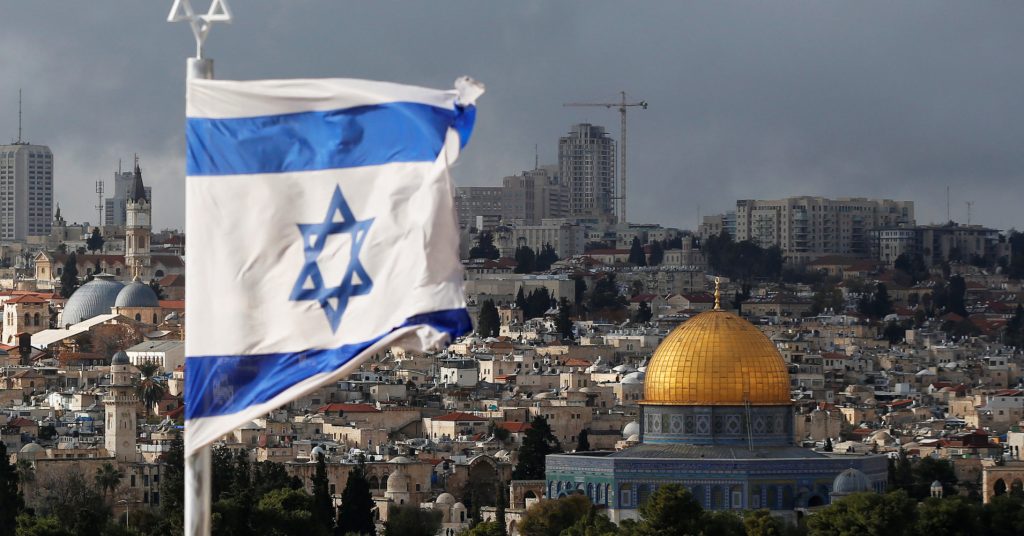Australia/Israel Review
Editorial: Israel’s Nation-State law
Jul 31, 2018 | Colin Rubenstein

Israel’s new Jewish Nation-State law, passed on July 19, is not the game-changer many of its champions and detractors have claimed it to be. It is instead an almost entirely symbolic reaction to those who object to the continued existence of Israel as a Jewish and democratic state.
Principally among them, of course, is the Palestinian leadership, who have vehemently rejected Israel’s reasonable demand to be accepted and recognised as a Jewish homeland in any future peace agreement.
Israeli Prime Minister Binyamin Netanyahu made this clear in his response to the law’s passage. “Israel is the nation state of the Jewish people, which respects the individual rights of all its citizens,” Netanyahu said. “In recent years there have been some who have attempted to put this in doubt, to undercut the core of our being. Today we made it law: This is our nation, language and flag.”
While it is increasingly apparent that the passage of the law could have been handled better, in principle, there is nothing wrong with such legislation. Indeed, similar constitutional provisions emphasising national self-determination and cultural expression can be found in numerous countries in Europe and elsewhere.
It simply enshrines among Israel’s Basic Laws the foundational sentiment embodied within Israel’s Declaration of Independence, namely, that Israel is the homeland of the Jewish people, where the Jewish people exercise their right to national self-determination. It then goes on to provide elevated constitutional status to existing laws regarding Israel’s flag, national holidays, use of the Jewish calendar, and the Hebrew language.
Claims that the law harms the prospects for a two-state peace outcome are simply bizarre – since 1947, partition has always been discussed in terms of a Jewish state existing alongside an Arab state.
Claims that the law is somehow racist or harms the status of minorities in Israel are baseless.
While certainly controversial, the new law also does not necessarily “downgrade” the status of Arabic in the country, explicitly stating that the clause identifying Hebrew as the official language of Israel “does not change the status given to the Arabic language before the Basic Law was created.”
A passage in the law that commends “Jewish settlement as a national value” also created controversy, primarily because the term “settlement” is inevitably associated with Jewish towns in the disputed West Bank. Yet the law’s phrasing in Hebrew simply mimics language of the pre-state Zionist movement regarding the national goal of rebuilding and restoring Jewish life in the land of Israel and, while this provision was designed to appeal to the Israeli right, it does not necessarily have any other connotations.
All this having been said, the offence voiced over the matter by Druze and Arab leaders, and criticism from some overseas Jewish groups, does suggest mistakes in the drafting, debate, and execution of the legislation.
This is lamentable, because the controversy risks setting back hard-fought and sustained achievements by successive Israeli governments in recent years towards empowering and integrating Israel’s minorities and addressing both the discrimination and social gaps which affect them.
Thabet Abu Rass, co-director of the Israeli coexistence NGO Abraham Fund, told the Jerusalem Post earlier this year that the Israeli Arab community is “more integrated” and has “more mobility” in Israeli society than ever, with a record number studying in Israeli universities, producing more Arab doctors, nurses and pharmacists than ever before. Abu Rass noted that four out of 11 players on Israel’s national soccer team are Arab, while the Netanyahu Government had delivered on a 2015 promise to invest 15 billion shekels (A$5.54 billion) into Israeli Arab communities – an infusion “unprecedented in scope”.
Radically anti-Zionist Arab lawmakers from the Joint List were always going to vehemently oppose any law of this kind – they object to any characterisation of Israel as a Jewish homeland. Yet searing opposition to it from most parliamentarians from Israel’s patriotic Druze community is a clear indication that the law could have been handled better – something that even right-wing Jewish Home party leader Naftali Bennett has now acknowledged and is seeking to address.
Further, the relatively close Knesset vote on the law hints at partisanship and political pointscoring by the Government in the drafting of legislation that, by its very nature, demanded consensus.
Noted Israeli social commentator Yossi Klein Halevi has correctly said about the Nation-State law, “Israel is based on two non-negotiable identities. The homeland of all Jews, whether or not they are citizens of Israel, and it’s the state of all its citizens, whether or not they are Jews… Anything that upsets that balance, in either direction, is a threat to Israel.”
Veteran Likud lawmaker Benny Begin, son of the late Israeli PM Menachem Begin, expressed similar concerns during Knesset debate and abstained on the vote.
As Begin suggested, it would have been both wiser and more constitutionally sound if the Basic Law had included a specific clause asserting that its provisions do not in any way diminish the legal, social, political or civil rights and equality of Israel’s non-Jewish minority. This was advisable even though the new law does not in fact supersede earlier Israeli basic laws which already guarantee these equal rights, such as the 1992 Basic Law: Human Dignity and Liberty.
Yet whatever missteps there may have been in creating this law, some perspective is in order. The ongoing national project that is Israel, Jewish and democratic, which existed before the passage of the law, continues unchanged. The partnership between Israel’s Jewish and Zionist majority and its non-Jewish and/or non-Zionist minorities will endure – a necessity for both populations, destined to live together in forging a common future.
For now, what is needed is a time for healing, and for the Israeli Government to reassure the country’s minorities through words and deeds that Israel’s laudable recent achievements to improve their welfare and integration in the economic, social and educational spheres will be not only sustained but enhanced.
Tags: Israel






